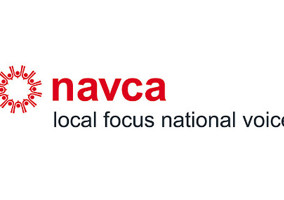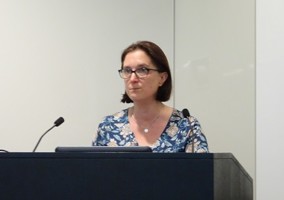Three of the charity sector’s major umbrella bodies each achieved financial surpluses last year, according to their annual accounts.
NCVO, ACEVO and NAVCA, which collectively represent thousands of charities across the UK, all made money in 2020-21, despite the pressures created by Covid-19.
Their accounts for the year to March 2021, published in the last week, show that income was down sharply at both ACEVO and NCVO, but tripled at NAVCA.
NAVCA did not publish membership numbers in its report, but told Civil Society News that this grew from 174 to 177. Membership also rose at the other two charities.
The NCVO annual report also included information about payments made to three members of senior staff who left the charity last year.
NCVO: Membership
NCVO’s income was down around 18% compared with 2019-20, from £9.1m to £7.5m.
Its spending fell by 16%, from £8.8m to £7.4m, leaving the organisation with a surplus of £84,000 before gains from investment.
NCVO’s membership grew to 16,457, up from 15,357 in 2019-20, although income from membership subscriptions dropped slightly to £1.92m. This is because many of the new members were eligible for free membership.
As a result of lockdown restrictions, income from room hire collapsed from £1.9m to just £29,000. NCVO claimed just over £400,000 through the government’s furlough scheme.
Priya Singh, the chair of trustees at NCVO, said: “The story at NCVO over this period reflects the experience of many of our members and the wider charity sector.
“We have seen demand for our services and resource increase, whilst many of our revenue-generating activities had to pause. We also undertook a strategy review with members and a consequent restructure, to ensure that we delivered best value for members and a sustainable future for NCVO.”
Payments to departing NCVO staff
The accounts also give details of the additional payments made to three senior members of staff who left during NCVO’s 2020-21 restructure.
Former chief executive Karl Wilding received £27,700, equivalent to three months’ wages. Wilding resigned as CEO in January, but stayed on until March as part of the handover process. His salary for the year was £125,997 and he also received pension contributions worth £12,449.
Megan Griffith Grey received £35,515 as a redundancy payment when she left her role as director of strategy and transformation, while departing deputy chief executive Susan Cordingley received £22,455 in lieu of notice.
As the result of the restructure in October 2020, NCVO paid out redundancy payments totalling £326,387 to 21 people in 2020-21. Staff headcount has reduced from 107 posts to 86 posts in total, and means that NCVO has removed £1.3m from its cost base going forward.
ACEVO
ACEVO’s income dropped by around 9% compared with last year, while making a surplus of more than £100,000.
Income was just over £1m in 2020-21, compared with £1.1 in 2019-20, while spending also fell, from £1.1m to around £900,000.
The lower income is partly explained because funding for ACEVO’s Home Truths project into addressing racism and discrimination in the charity sector came to an end. The project was backed by the National Lottery Community Fund.
The accounts said that membership numbers were up 8% compared with last year, from 1,443 to 1,563. Income from membership fees rose from £525,000 to £575,000.
ACEVO used its annual report to commit to “re-establishing the credentials” of charities with what it called a “charity-sector-sceptic government”.
The report said that ACEVO would work to demonstrate that charities were an “effective policy and delivery partner in the levelling up of left-behind people and places. One of the most effective ways to do this will be finding new ways to directly ‘put’ members and/or their stories in front of those we are seeking to influence”.
Rosie Ferguson, the chair of trustees, and Vicky Browning, the chief executive, acknowledged in the introduction to the accounts that “financially ACEVO has fared better than many”, after a year which has seen many charities face heavy losses and redundancies.
NAVCA
NAVCA’s income more than tripled in 2020-21 compared with 2019-20, rising from £400,000 to over £1.5m.
Its spending also rose extremely sharply, from £380,000 to around £1.4m.
The charity, which represents civil society infrastructure bodies, had a surplus of £60,000 at the end of March 2021, the second year in a row it had earned more than it spent. Prior to this, NAVCA had lost money every year since 2013.
The income growth was driven largely by a one-off restricted government grant of just over £1m to help NAVCA coordinate the charity sector’s response to the Covid-19 crisis and make grants to other organisations affected by the pandemic.
The number of NAVCA members grew slightly from 174 to 177, and income from membership fees went up by more than 10%, from £44,000 to £49,000.
Judy Robinson, the chair of trustees at NAVCA, said: “Financially our year looked very different to previous years, and likely future years too, as the long tail of Covid-19 will be felt for years to come, socially and economically as well as in terms of infection rates and their impact.
“‘Unprecedented’ has been such a heavily used word over the past 18 months that it can be difficult to recognise the extent of the impact on what we do and how we do it. We have learned lots, evolved and developed.”
Related news












